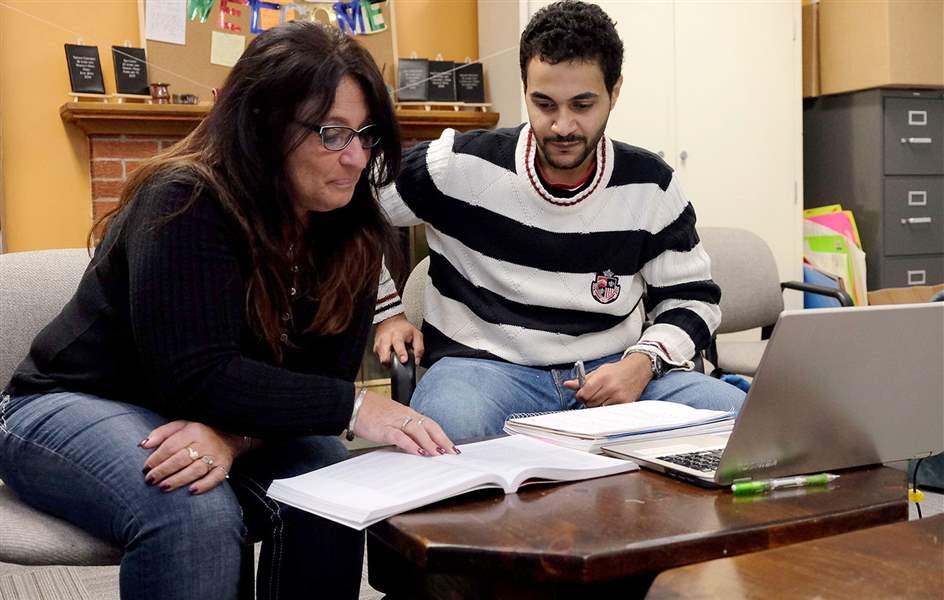
EDITORIAL
Educators are key players in opioid battle
11/12/2017
Workshop participant Tammy Meridieth, left, and University of Findlay student Abdul Almaghrabi work on a depressants group project during an introductory class on substance abuse issues. Findlay has begun offering a minor in substance-use disorder.
THE BLADE
Buy This Image
It has been well-established that stemming the opioid epidemic requires a dual focus on law enforcement and rehabilitation.
But there is another area that should not be undervalued: education.
Ohio Attorney General Mike DeWine recognizes this. In his 12-point plan to attack the problem that he recently announced, he recommended that the state implement drug education in kindergarten through 12th grade.
Click here to view more Blade editorials
Many students do not recognize the addictive power of opioids. A typical abuser of opioids, or heroin and fentanyl, did not begin his addiction by shooting heroin into his arm. It began with a prescription to deal with a football injury or to ease pain from having wisdom teeth extracted.
Educating students, at least, alerts them to the danger and makes them aware of the early signs. It can also destigmatize drug addiction.
“We need to get to the point where if you went home tonight and your neighbor came over and said they themself or someone they love is addicted to heroin, that your response is intuitively one of empathy,” Precia Stuby, executive director of Hancock County Board of Alcohol Drug Addiction and Mental Health Services, told The Blade.
Stigmas are a big deterrent to people seeking treatment, whether it is a soldier not wanting to appear weak by talking to someone about his Post Traumatic Stress Syndrome or a drug addict not wanting to be viewed as a “loser.”
Colleges are playing a role in the drug education effort. The University of Toledo offers an undergraduate certificate in chemical-dependency counseling and Bowling Green State University has a course on alcohol and substance-abuse treatment.
The University of Findlay has begun offering a minor in substance-use disorder. The coursework is open to students but also to members of the community who are interested in obtaining a chemical-dependency counselor assistant license.
For some, the University of Findlay courses will provide a route to counsel and change lives of drug addicts. For others, they will offer help in understanding actions of a family member, a friend, or a co-worker.
Law enforcement and rehabilitation are the key players in the opioid fight. But educational institutions must school the young in the dangers our children face.